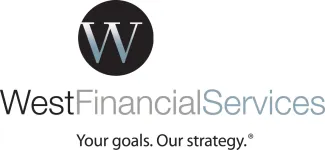
How Much Is Enough...Stuff? Part Two of a Series
There are definitely a few ways to approach the topic of how much (fill in the blank) a person needs. Another challenge is that the idea of paring down possessions and simplifying your life is not a particularly innovative topic. The truth is, I’m currently living through the purge as we pack up our home of 23+ years so that we can move out while she gets a well-earned refresh from top to bottom. As we fill up countless boxes and bins with books and memorabilia, I can tell you that I am not one to talk about living the simple life. So, I’d like to focus more on the topic of materiality and introduce one of the most important and influential books I’ve ever read, Fewer, Better Things by Glenn Adamson.
In the book, Mr. Adamson discusses different aspects of objects and how they play a part in our highly digitalized world. That objects have meaning and can teach us beyond what we can learn through the vast technological resources particularly resonates with me. One quote in particular, “A well-made object is informed by thousands of years of accumulated experiment and know-how,” makes me want to pause and systematically evaluate the accumulated stuff in our lives. The author concedes that technology and efficiencies have expanded our worlds and knowledge of things, but the end result in some respects may lack quality and timelessness. In other words, more does not necessarily equal better. Also, the ability to navigate a material world can take more skill than just scrolling through the internet.
In fact, it seems as if the fate of the planet may reside in humans taking more of an interest in, “cultivating a cultural interest in fewer, better things…” Think of the difference between cheap, easily replaceable plastic objects and those with more permanency. There’s an element of craftsmanship that, if we can embrace it, will ultimately lead to less waste.
That’s not to say that all technological advancements should be discounted. In fact, digital access to the hows and whys of material intelligence has created new opportunities for many people to learn old skills. While it became somewhat of a punchline during the pandemic, many people embraced cultivating yeast starters to make sourdough bread, a centuries old practice that involves patience and skill during the bread-making process.
So, what does all this mean in terms of how much is enough? For me, it is looking at what we have and being pleased with many of our early choices. Most of our furniture will return from storage and find a home in our newly updated spaces not because we need to reuse as much as possible, but because we purchased pieces we love and that have enduring quality and craftsmanship. Beyond that, these material things have a story to tell about our family, which is something I hope to never lose.
Meet Kristan L. Anderson, CEBS®, CFP® »
"How Much is Enough" Series:
- "How Much Is Enough? Part One of a Series"
April 29, 2024 By Kristan L. Anderson, CEBS®, CFP® » - "How Much is Enough...Space? Part Three of a Series"
February 28, 2025 By Kristan L. Anderson, CEBS®, CFP® » - "How Much is Enough…Money? Part Four of a Series"
July 30, 2025 By Kristan L. Anderson, CEBS®, CFP® »
West Financial Services, Inc. (“WFS”) offers investment advisory services and is registered with the U.S. Securities and Exchange Commission (“SEC”). SEC registration does not constitute an endorsement of the firm by the SEC nor does it indicate that the firm has attained a particular level of skill or ability. You should carefully read and review all information provided by WFS, including Form ADV Part 1A, Part 2A brochure and all supplements, and Form CRS.
This information is intended to be educational in nature, and not as a recommendation of any particular strategy, approach, product, security, or concept. These materials are not intended as any form of substitute for individualized investment advice. The discussion is general in nature, and therefore not intended to recommend or endorse any asset class, security, or technical aspect of any security for the purpose of allowing a reader to use the approach on their own. You should not treat these materials as advice in relation to legal, taxation, or investment matters. Before participating in any investment program or making any investment, clients as well as all other readers are encouraged to consult with their own professional advisers, including investment advisers and tax advisers.

